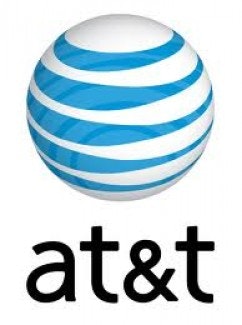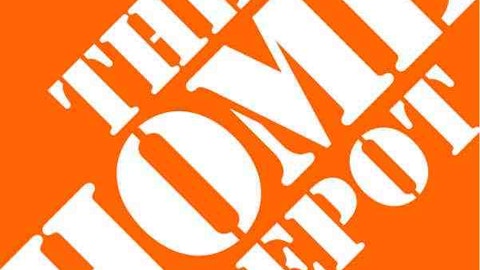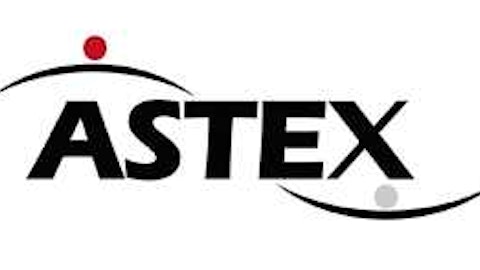Will the Dogs beat the Dow in 2013 — or is their bark worse than their bite?
The Dogs of the Dow strategy involve investing equal amounts into the 10 highest-yielding dividend stocks on the Dow Jones Industrial Average 2 Minute (INDEXDJX:.DJI). Dogs are selected on December 31 and held until the same date the next year. At that point, the new batch of best-performers can shuffle in to replace those that fell in rank.

There are some risks to the Dogs of the Dow, but the ease of the strategy continues to attract investors. How have the current class of Dogs performed year to date?
Here’s a look at the 2013 Dogs of the Dow, including the dividend yield and price as of December 31, 2012.
| Company | 2012 Yield | 2012 Price | Current Price* | Per. YTD |
| AT&T Inc. (NYSE:T) | 5.34% | $33.71 | $33.69 | 3.76% |
| Verizon Communications Inc. (NYSE:VZ) | 4.76% | $43.27 | $46.95 | 12.05% |
| Intel Corporation (NASDAQ:INTC) | 4.36% | $20.62 | $22.19 | 10.89% |
| Merck & Co., Inc. (NYSE:MRK) | 4.20% | $40.94 | $47.11 | 17.25% |
| Pfizer Inc. (NYSE:PFE) | 3.83% | $25.08 | $28.00 | 14.47% |
| E I Du Pont De Nemours And Co (NYSE:DD) | 3.82% | $44.98 | $56.75 | 29.33% |
| Hewlett-Packard Company (NYSE:HPQ) | 3.72% | $14.25 | $16.67 | 56.18% |
| General Electric Company (NYSE:GE) | 3.62% | $20.99 | $23.18 | 12.25% |
| McDonald’s Corporation (NYSE:MCD) | 3.49% | $88.21 | $94.84 | 9.24% |
| Johnson & Johnson (NYSE:JNJ) | 3.48% | $70.10 | $86.17 | 25.78% |
Sources: S&P Capital IQ and Finviz. *Current price and YTD performance as of market close Aug. 27.
The Dow is up 12.8% year to date compared to a 19.1% average for the Dogs, which makes for a difference of 6.3%.
Hewlett-Packard has driven the Dogs with its rise from the near-dead. The technology company performed better than expected in the first and second quarters, but the third quarter fell short, and Hewlett’s shares began a pullback. Remove Hewlett-Packard’s wild ride, and the Dogs average drops to 15%.
What’s driven the other Dog leaders?
DuPont’s year has included the strong performance of its Agriculture segmentand a big investment from Nelson Peltz, the billionaire head of Trian Fund Management.Investors have stayed optimistic thanks to DuPont’s talks of divesting its (ironically) underperforming Performance Chemicals segment.
Johnson and Johnson (NYSE:JNJ) benefits from having its hands in multiple pots, which spreads the risk. The pharmaceutical side had a victory earlier this year when it received Food and Drug Administration approval for Invokana — a SGLT2 diabetes treatment that’s first in class for the United States.
Merck is suffering from the patent expiration of $5 billion asthma drug Singulair last year, but the company’s HPV and diabetes products continue to show strength. And investors cheered the installation of new R&D head Roger Perlmutter, who will work to make Merck’s pipeline look healthier.
How will the year end?
Last year, the Dogs had a total return of about 5.7% compared to 7.3% for the Dow. Here’s a comparison for the previous five years:

Source. DogsoftheDow.com.
This year’s Dogs should at least match 2011’s performance — assuming nothing happens to implode Hewlett-Packard before the end of the year.
While the Dogs strategy doesn’t require any upkeep, investors still need to pay attention to the overall investing climate, or a hard year might sneak up on the Dogs, such as 2008’s recession reaction.
Foolish final thoughts
It’s important to do your research before trying a new investment strategy — even if that strategy boils down to “buy and hold for a year.” The Dogs of the Dow has its limits, but investors may find the benefits worth that risk. And the current Dogs should continue their streak of outperforming the Dow.
The article Are the Dogs of the Dow Still in the Race? originally appeared on Fool.com.
Brandy Betz has no position in any stocks mentioned. The Motley Fool recommends Johnson & Johnson. The Motley Fool owns shares of Johnson & Johnson.
Copyright © 1995 – 2013 The Motley Fool, LLC. All rights reserved. The Motley Fool has a disclosure policy.




